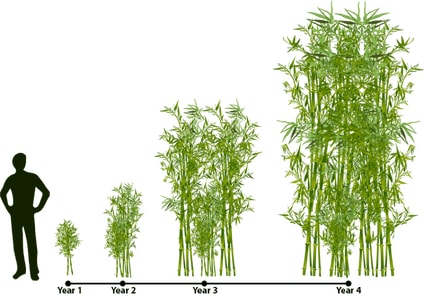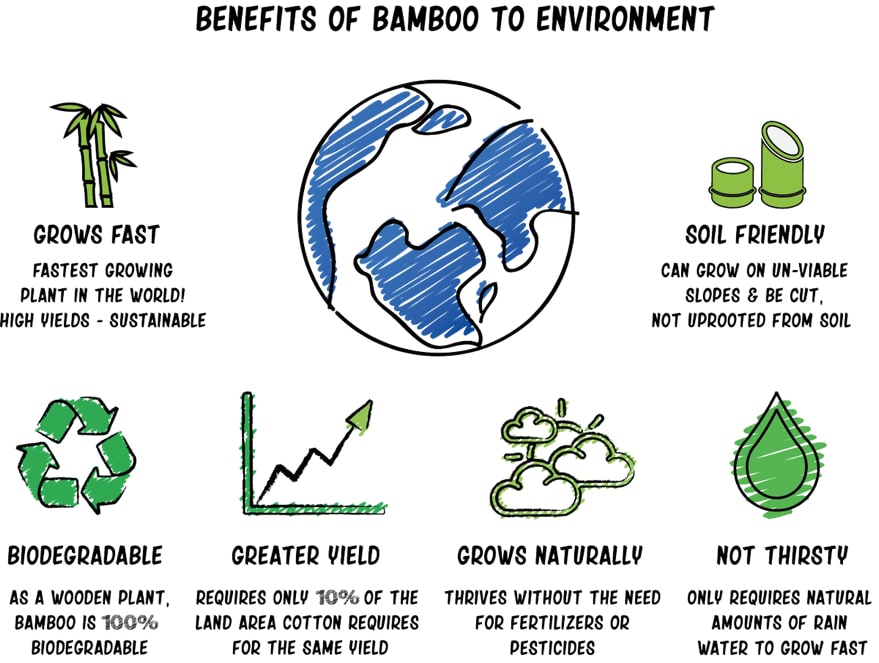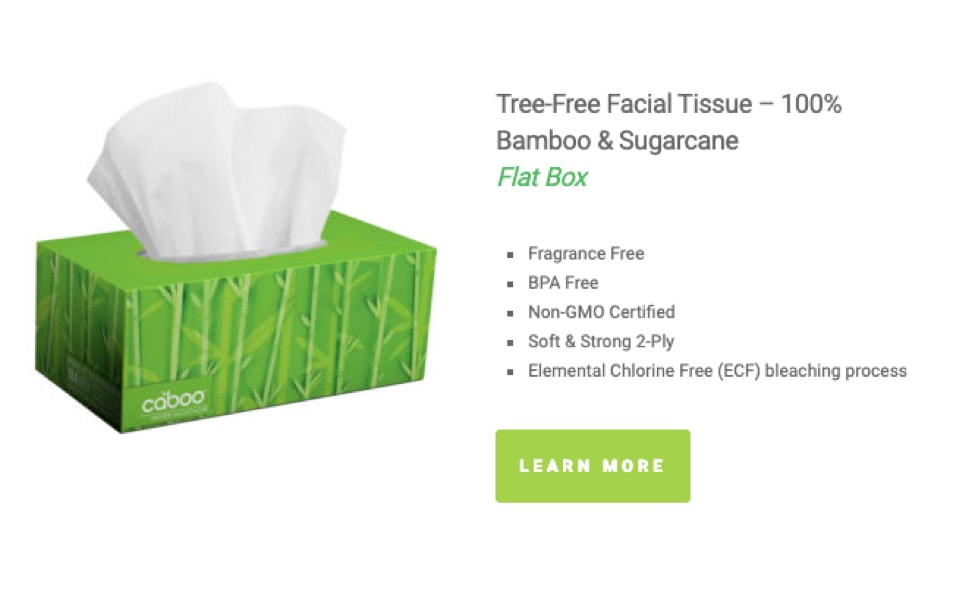By: Nicole Schlabach
Bamboo has served as an alternative material to wood and plastic for years. Recently, the market has grown significantly in response to rising awareness about its uses and sustainable benefits.
In fact, the global bamboo market will have a CAGR of 5% through 2025, according to Grand View Research.
When held in your hand, bamboo is resilient, water-proof, and lightweight. Its strength, affordability, and growability make it an advantageous choice for global builders and manufacturers.
Characteristics of Bamboo Make it an Appealing Alternative
Bamboo has a variety of features that make it stand out among other manufacturing materials. The adaptable plant can flourish in a wide array of climates.
In fact, a type of bamboo exists in almost all regions of the world, including wetlands, jungles, and mountain ranges. Beyond its diverse growing locations, the way it grows also brings value.
Each hour, bamboo shoots can grow up to two inches. Each new shoot reaches its mature height in less than three months.
Then, the next growing season, new shoots emerge and grow for 60 days, surpassing the initial stalks’ height. This continues for several years.

Source: Lewis Bamboo
Even the slowest-growing bamboo will be ready for harvesting faster than most trees. Many hardwoods don’t mature until 100 years have passed. Compared to timber, bamboo is also easier to harvest and transport.
It’s difficult to destroy a bamboo plantation. In Japan in the mid-1940s, it was the only plant to survive the Hiroshima atomic bombings.
Bamboo’s resiliency and hardiness make it an attractive choice for farmers in diverse locations. Its resulting availability has spurred popularity in the manufacturing market.
Bamboo is a Sustainable Resource
Since bamboo regenerates so quickly, it’s a renewable source of manufacturing material. Instead of clearing a forest that won’t recover for decades, growers can simply plant bamboo once.
Incredibly, the bamboo’s root system allows it to produce a new shoot without re-planting it. Minimal disruptions to the landscape mean less soil erosion.
It also helps to cleanse the air. The plant is a powerful agent for carbon dioxide reduction. In comparison to similar-sized trees, bamboo consumes more carbon dioxide and produces 35% more oxygen.
Importantly, bamboo printing paper can be recycled. Unlike plastic, bamboo is biodegradable, meaning it’ll break down naturally with the help of microorganisms.

Source: Stand4Socks
The stalks are also soil-friendly. They don’t require any added water or chemicals to grow, which conserves farmers’ resources. The final product will be cleaner than crops like cotton that are sprayed with fertilizer or pesticides.
Bamboo products like Bambooee paper towels offer sustainable benefits while in-use. In addition to being more durable and absorbent, they are machine-washable for up to 100 rounds.
All in all, bamboo offers environmental benefits from the moment its planted until it’s put to use.
Bamboo Has Versatile Uses
It’s difficult to name an item that can’t be constructed from bamboo. The stalks can be used to produce traditionally wood, metal, or plastic items.
Flexible bamboo may seem flimsy — but it’s stronger than steel. These lightweight, durable properties make it a popular material for supplies like floors, roofs, or furniture.
For similar reasons, bamboo is also used to create agricultural tools. There are bamboo animal traps, wheels, rakes, and shovels.
The bamboo pulp can also be transformed into recyclable paper, cardboard, or tissues. Companies like Caboo sell tree-free tissue, toilet paper, and paper towels made of bamboo and sugarcane.
Source: Caboo
Companies that sell bamboo products often tout the sustainable benefits of bamboo as a reason for starting their company.
It makes sense that bamboo could replace wood. But, it can also replace fabric material. When it’s woven, it becomes soft and durable. Consumers purchase both bamboo clothing and rugs.
The possibilities for bamboo are limitless, making it a desirable option for manufacturing entrepreneurs.
Bamboo’s Benefits Will Sustain its Popularity
From consumer products to the construction industry, many areas have leveraged bamboo as a cost-effective, sustainable material. All of these industries rely on manufacturing to make these products possible.
Bamboo is easy to grow, sustainable, and adaptable to different use-cases. As consumers become more environmentally conscious, the demand for bamboo-made goods will continue to grow.
Stakeholders in the manufacturing industry should remain aware of the possibility to supplement or replace their materials with the hardy, accessible plant.
 Nicole Schlabach is an Editorial Associate for Clutch, a platform that helps businesses research and determines which business services providers best fit their project needs.
Nicole Schlabach is an Editorial Associate for Clutch, a platform that helps businesses research and determines which business services providers best fit their project needs.
To read more articles from Clutch, click here.
Thank you for reading. Please drop a line and help us do better.
Regards,
The CSR Journal Team


